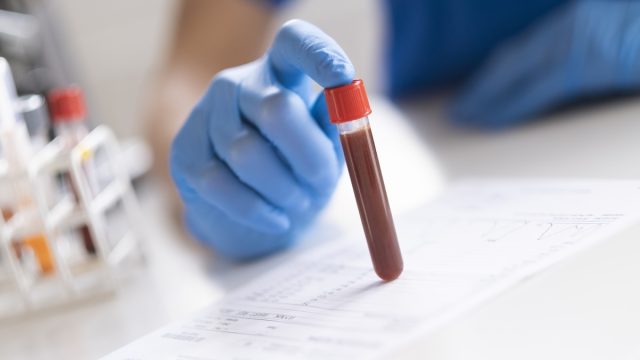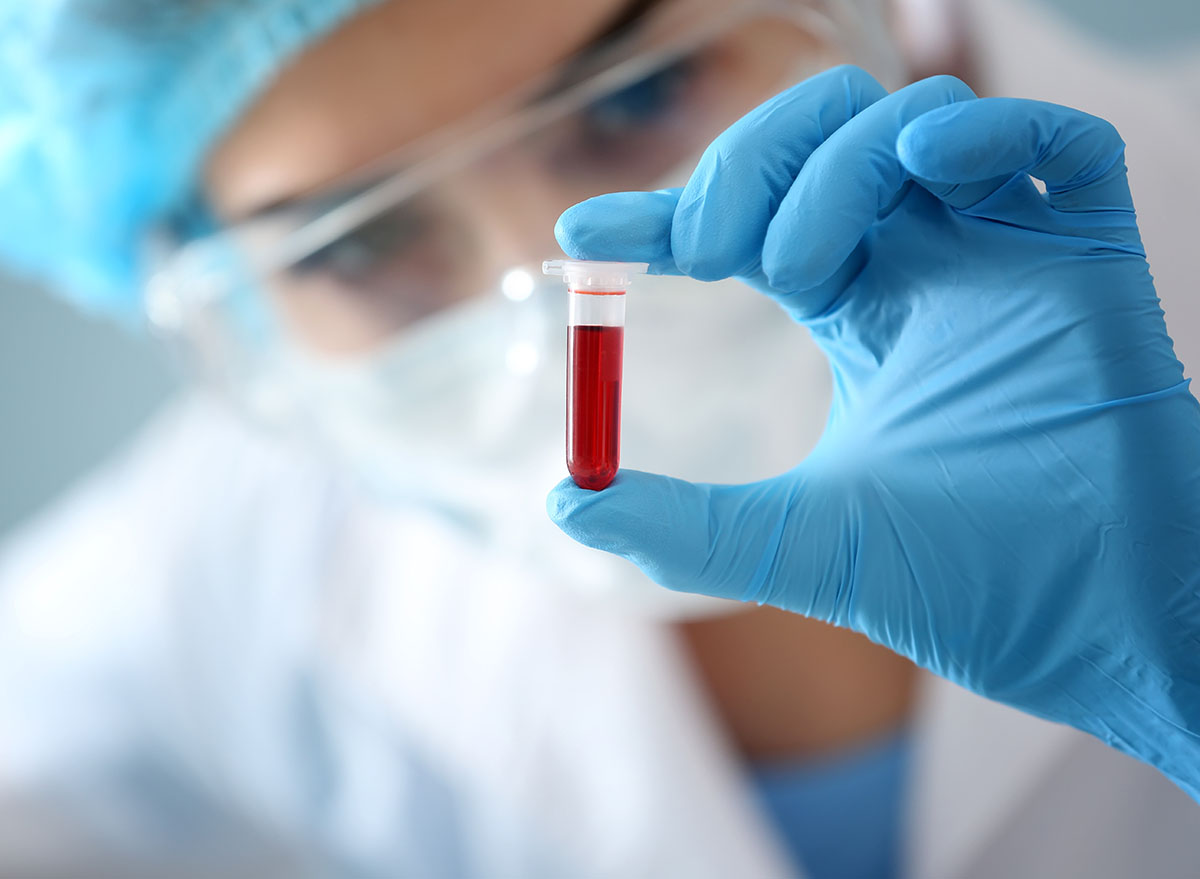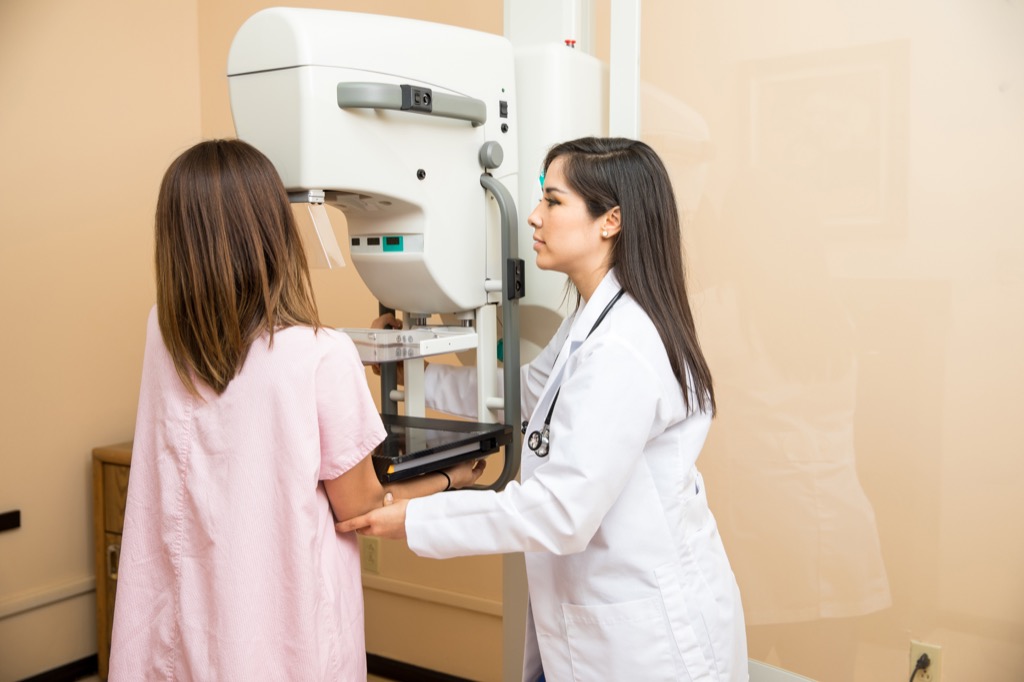New $3 Blood Test Is “Groundbreaking” in Detecting Cancer, Doctors Say

When it comes to cancer, early detection is often the key to a good prognosis. That’s why researchers are continually looking for new ways to identify the biomarkers that could point to a problem earlier. Now, a team of researchers has developed a “groundbreaking” new $3 blood test to add to the cancer detection arsenal. Read on for everything you need to know about the multi-cancer detecting test, which requires just a small draw of blood and can give patients answers in just hours.
RELATED: $2,500 Full-Body Scans Can Find Cancer Early—Do Doctors Recommend It?
Here’s how the new test works.

According to the Mayo Clinic, “Most blood tests aren’t used on their own to diagnose cancer. But they can provide clues that may lead your health care team to make the diagnosis.”
When using blood and lab tests to aid in the detection of cancer, doctors will often use a complete blood count (CBC) panel, tests that look at blood proteins, and tumor marker tests to find certain chemicals made by cancer cells. Other tests can look for cancer cells themselves, or identify cancer cells’ genetic materials, the Clinic notes.
However, according to a new study published in the medical journal Cancer Discovery, researchers have identified a blood test that can spot a protein known as LINE-1-ORF1p—a “telltale” feature of several cancer types. The test requires only a small amount of blood and can be analyzed in less than two hours.
While LINE-1 is a protein that can be found in any human cell that replicates “through a copy-and-paste mechanism,” it only produces ORF1p in high levels when cancer is present, the study authors explain.
“There are layers of mechanisms that prevent LINE-1 from being expressed and producing ORF1p, so we can use the presence of the protein as a proxy for an unhealthy cell that no longer has control over its transcriptome,” said John LaCava, PhD, a research associate professor at Rockefeller University and a co-author on the study, in an Oct. 31 article published by the university. “You shouldn’t find ORF1p in the bloodstream of a healthy person.”
RELATED: 30 Things You Had No Idea Could Cause Cancer.
Scientists say it has “groundbreaking potential.”

Because ORF1p proteins “become highly elevated in most cancers,” a single test could soon help doctors identify a wide range of cancers, including those affecting the “esophagus, colon, lung, breast, prostate, ovaries, uterus, pancreas, and head and neck,” the researchers say.
“The assay has groundbreaking potential as an early diagnostic test for lethal cancers,” says Michael P. Rout, PhD, head of The Rockefeller University’s Laboratory of Cellular and Structural Biology. “These kinds of ultrasensitive detection instruments are poised to improve patient outcomes in transformative ways.”
LaCava notes that establishing a “baseline” during your healthy years could help identify a problem later down the line: “Your doctor would just keep an eye out for any spikes in ORF1p levels, which could be indicative of a change in your state of health. While there might be some minor ORF1p fluctuations here and there, a spike would be a cause for a deeper investigation.”
The test may also help monitor cancer treatment.

Another way that the blood test might aid in cancer care is that it could potentially help doctors monitor the progress of cancer treatments. LaCava notes that when a treatment is effective, you can expect ORF1p levels in the patient’s blood to decrease.
In fact, the study looked at data from 19 patients being treated for gastroesophageal cancer to decipher just how accurately the test could identify effective treatment. Among the 13 patients whose cancer treatments were working effectively, ORF1p consistently fell to undetectable levels, suggesting high levels of reliability.
RELATED: New Treatment Could Halve Your Cholesterol, Researchers Say—And It’s Not Statins.
The best way to detect cancer is still through regularly scheduled screenings.

Though blood tests and other biomarker-based tests are pushing the frontiers of cancer research, experts say that your best chances of early detection are still to get your regularly scheduled cancer screenings. For instance, women with no family history of breast cancer should plan on getting annual mammograms beginning at age 40. Men and women at average risk for colon cancer should begin getting colonoscopies at age 45.
To find out which other screenings you may need based on your age, consult this reference guide from the American Cancer Society. Speak with your doctor to learn more about regular cancer screenings, and be sure to inform them of any family history of cancer, which could alter your screening schedule.
For more health news sent directly to your inbox, sign up for our daily newsletter.
Best Life offers the most up-to-date information from top experts, new research, and health agencies, but our content is not meant to be a substitute for professional guidance. When it comes to the medication you’re taking or any other health questions you have, always consult your healthcare provider directly.